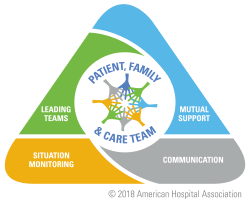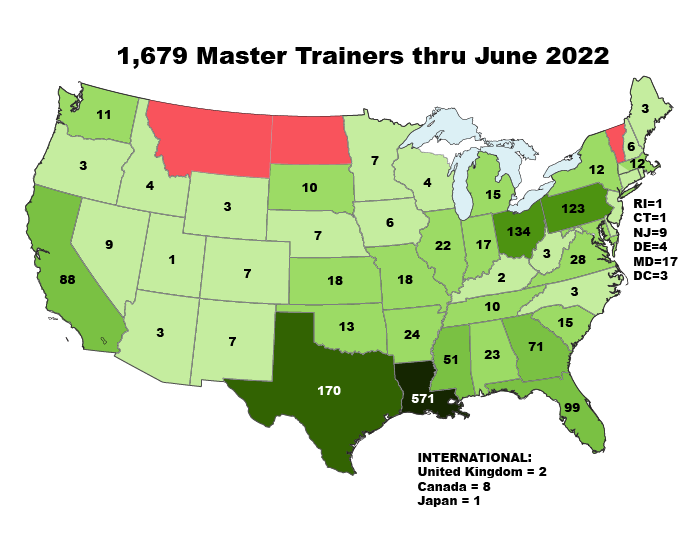TeamSTEPPS Overview
Healthcare organizations are high reliability organizations that should be comprised of teams that function in consistent, reliable, and safe manners. But we know that is not always the case, as evidence points to complications, mistakes, errors, and even communication errors that can result in patient harm. Compiled reports on leading causes of death come from death certificate listed causes and do not capture these numbers. Building on the now outdated Institute of Medicine (IOM) report of 44,000-98,000 annually deaths from medical error, a 2016 BMJ publication places the estimate at closer to 251,000, making it the third leading cause of death in the U.S. (https://www.bmj.com/content/353/bmj.i2139)
So how do you improve patient safety at your institution? One way is to help your teams become expert teams and not just teams of experts? Team training covers concepts of not just teamwork, but also leadership, advocacy, situational awareness, mutual support, and communication. Many of the areas can lead to errors and patient harm, when they are deficient in a team. There are many models of team training; at the Tulane School of Medicine we have for more than a decade been expert teachers of TeamSTEPPS.
TeamSTEPPS stands for Team Strategies and Tools to Enhance Performance and Patient Safety. TeamSTEPPS was developed by the U.S. Department of Defense Patient Safety Program and the Agency for Healthcare Research and Quality (AHRQ) and released in 2006. Members of the Tulane School of Medicine have been part of an American Hospital Association (AHA) led national initiative to teach and spread TeamSTEPPS since 2011.

The TeamSTEPPS Triangle features the four major competency areas that cover all tools and strategies.
- Leading Teams strategies cover coordination, assigning tasks, motivating teams, and facilitating performance.
- Mutual Support strategies cover anticipating needs of others and balancing workloads during periods of high stress.
- Situation Monitoring strategies cover shared mental models and understanding and monitoring member's performance.
- Communication strategies cover the effective exchange of information among all team members.
How can we help you advance your patient safety initiative with TeamSTEPPS?
Find TeamSTEPPS Master Trainer course dates: https://www.aha.org/center/team-training/courses-and-workshops
Can't find a date that works for your team? Or need something other than a Master Trainer course? Or do you have 10 or more people who need to be trained? For all these reasons a course at your institution, instructors come to you, may be the best or most economical answer. Reach out to us and we can guide you. EMAIL for TeamSTEPPS information.
The guides below may help provide you with more direction.
TeamSTEPPS overview guide by the American Hospital Association
TeamSTEPPS readiness assessment and quote request form
TeamSTEPPS guide to preparing your team for training

Additional American Hospital Association TeamSTEPPS resources
AHA Mighty Network TeamSTEPPS group
TeamSTEPPS Tools and Resources for Attendees at Tulane Courses: CLICK HERE
